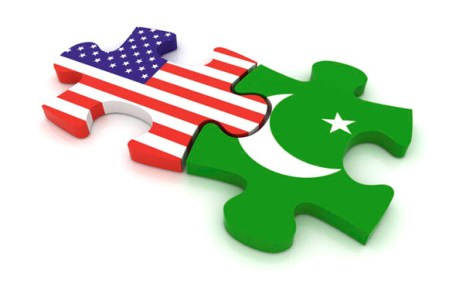US Will Not Bust Up with Pakistan

After the assassination of Osama bin Laden in Pakistan, the US entered the list of the countries that accuse Pakistan of adopting a dual approach in fighting against terrorism. But Washington is not just Pakistan’s run-of-the-mill ally, but an arch-friend, which not only supports Islamabad financially, but also gave it regional strategic depth. It is true that the US and Pakistan have currently drifted apart, but politicians in Islamabad know well that the US will not abandon simply. IRD review the story in an interview with Nozar Shafee’i:
IRD: What is Washington’s approach towards the current situation in Pakistan?
NS: In its approach towards Pakistan, the US takes considerations of two critical issues: first, the Pakistani government is a failed state; thus, it could easily crumble against excessive pressure, while what Washington needs is a powerful government ruling the country. Secondly, the country is the home to many radical movements whose damaging effects can be easily observed regionally and internationally. The alternating tough or moderate policies followed by the US are aligned by this two considerations.
IRD: Regarding the current atmosphere of the US-Pakistan relations, some analysts talk a new power arrangement forming in the region; that is, Pakistan will replace China for the US while Kabul and New Delhi get closer to Washington. Do you see this as a likely scenario?
NS: The second part of the story is actually happening: the US-India relations are improving, and the same is true about the India-Afghanistan ties. But this does not mean that the US is voluntarily breaking away from Pakistan. Islamabad enjoys merits from which the US can take advantage of, provided that it keeps up the warm relations
At any rate, Pakistan asserts dominance over a major part of the Sea of Oman and has established strategic ties with China. If the pressures steps up, Pakistan may start floating the idea of getting closer to Iran, a possibility which can harm the US’ interests. If Washington leaves the country high and dry, radical forces may infiltrate the power structure of Pakistan and give the US its worst nightmare: terrorists wielding A-bombs. Generally, the US prefers attraction to rejection, but this policy manifests itself in both tough and moderate faces.
IRD: Could Washington’s recent achievements in assassination of terrorist leaders in Afghanistan and Pakistan convince the White House to tone down the level of ties with Pakistan?
NS: The assassination operations were significant achievements for the US and at the same time, a devastating damage to the radical movements in Pakistan, Afghanistan and South Asia in general. But this is not whole of the story; elimination of alQaeda or Taliban leaders does not disband extremist groups, these groups function as coordinate cells, have a significant number of recruits in various countries, enjoy powerful financial supports and possess a social base. Diminishing their power is not a cakewalk.
IRD: What are the consequences of the current tense state of US-Pakistan relations and how do these ties affect South Asia?

